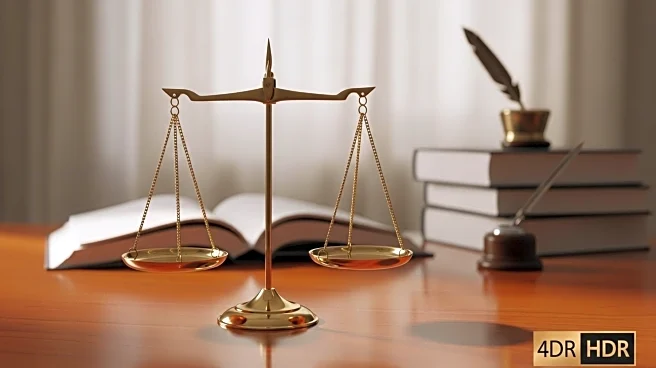What's Happening?
Justice Anthony Kennedy, a former member of the U.S. Supreme Court, has released a memoir detailing his experiences and decisions during his time on the court. Appointed by President Reagan, Kennedy often voted with conservatives but was known for his pivotal role in controversial cases, including those concerning same-sex marriage and abortion. His memoir provides insights into his judicial philosophy and his concerns about the current state of political partisanship. Kennedy's reflections offer a unique perspective on the balance between conservative and liberal ideologies within the Supreme Court, highlighting his role in shaping significant legal precedents.
Why It's Important?
Kennedy's memoir is significant as it sheds light on the inner workings of the Supreme Court and the complexities of judicial decision-making. His pivotal votes in landmark cases have had lasting impacts on U.S. law and society, particularly in areas such as civil rights and personal freedoms. The memoir also addresses the growing concern over political polarization, which Kennedy views as a threat to the judicial system's integrity. By sharing his experiences, Kennedy contributes to the ongoing dialogue about the role of the judiciary in a divided political landscape, potentially influencing future legal interpretations and public perceptions of the court.
What's Next?
The release of Kennedy's memoir may prompt discussions among legal scholars, political analysts, and the public about the Supreme Court's role in addressing divisive issues. It could also influence how current and future justices approach cases that involve balancing conservative and liberal viewpoints. As the nation grapples with increasing partisanship, Kennedy's insights might inspire efforts to preserve judicial independence and integrity. Additionally, the memoir may serve as a resource for understanding the historical context of key Supreme Court decisions and their implications for contemporary legal challenges.
Beyond the Headlines
Kennedy's reflections on partisanship highlight ethical considerations regarding the influence of political ideologies on judicial decisions. His memoir may encourage a reevaluation of how justices are appointed and the importance of maintaining a non-partisan judiciary. The book also underscores the cultural shifts in American society, as seen through the lens of landmark rulings on social issues. Kennedy's narrative could contribute to broader discussions about the evolving role of the Supreme Court in shaping societal norms and protecting individual rights.









